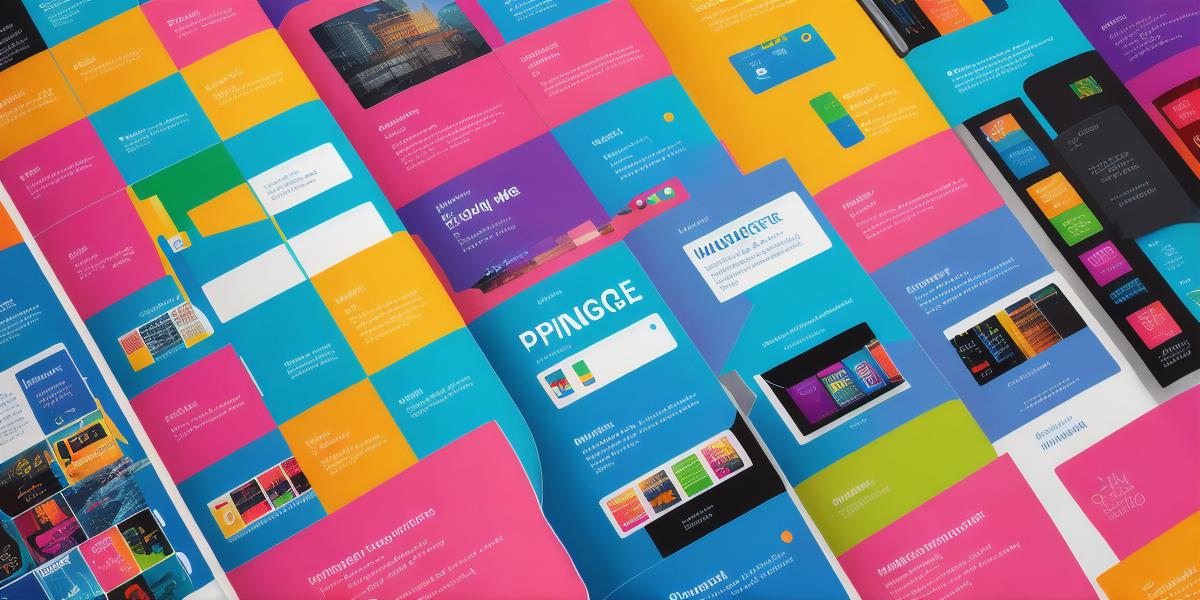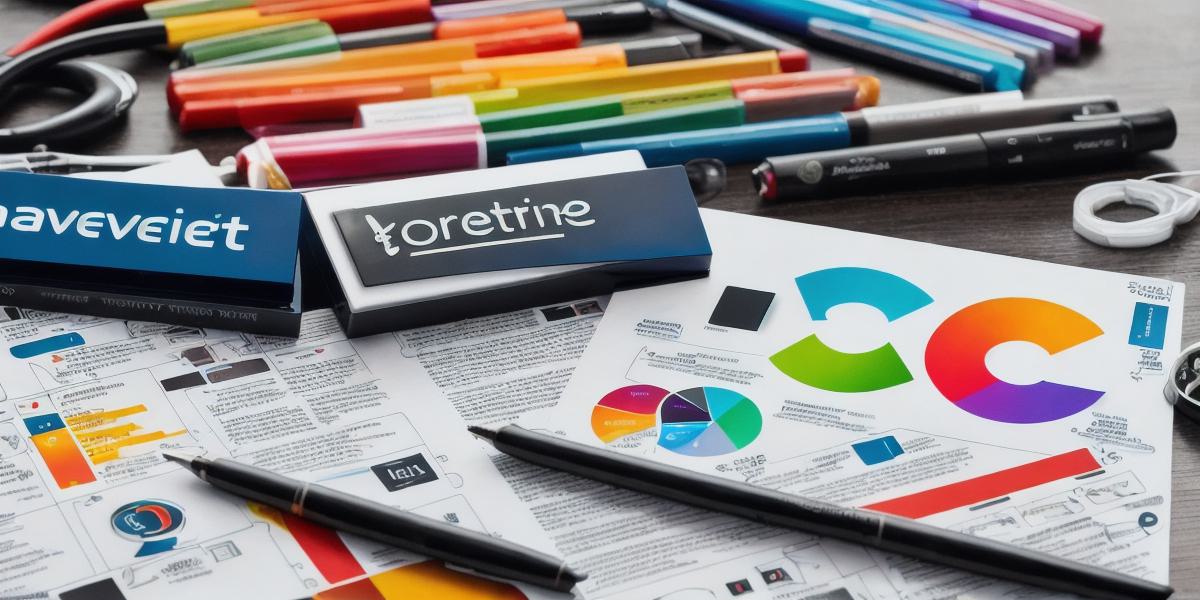Are you a Shopify store owner looking to increase your sales and grow your business? Look no further! In this comprehensive guide, we will explore the best marketing tools available to Shopify users. From email marketing to social media advertising, we’ll take a closer look at each technique and provide real-life examples of how they can help you achieve your goals.
1. Email Marketing: A Must-Have for Shopify Store Owners
Email marketing is a powerful tool for reaching out to potential customers and keeping your existing customers engaged. With Shopify, you can easily set up an email marketing campaign using one of the many third-party providers available. Some popular options include Mailchimp, Klaviyo, and ConvertKit.
Why Email Marketing Matters:
- Targeted reach: With email marketing, you can target specific groups of customers based on their past purchases or behavior. This means you can send targeted promotions and offers to customers who are most likely to be interested in them.
- High ROI: Email marketing has been shown to have a high return on investment (ROI), with up to $44 for every dollar spent.
- Cost-effective: Email marketing is an affordable way to reach out to potential customers, and it doesn’t require a significant budget to get started.
Here’s an example of how email marketing can be used effectively in Shopify:
Case Study: Dollar Shave Club
Dollar Shave Club, the online razor subscription service, uses email marketing to great effect. After customers sign up for their service, they receive a welcome email that includes a discount code and an invitation to try out their products. They also send regular emails with promotions and exclusive offers, as well as informative content about shaving techniques and product usage.
By using email marketing effectively, Dollar Shave Club has been able to build a loyal customer base and grow its business rapidly.
2. Social Media Advertising: Reach New Customers with Ease
Social media advertising is another powerful tool for Shopify store owners. With platforms like Facebook, Instagram, and Twitter, you can easily reach new customers and target them based on their interests, demographics, and behavior.
Why Social Media Advertising Matters:
- High Targeting Capabilities: Social media advertising allows you to target specific groups of people with your ads, which means you can show your ads only to those who are most likely to be interested in them. This helps increase the effectiveness of your ad campaigns and reduces costs.
- Cost-effective: While social media advertising does require a budget, it is still an affordable way to reach new customers. Plus, with the right targeting and creative, you can get a high return on investment.
- Engagement Opportunities: Social media advertising also allows you to engage with potential customers through comments, likes, and direct messaging. This helps build relationships and increase brand awareness.
Here’s an example of how social media advertising can be used effectively in Shopify:
Case Study: Glossier
Glossier, the beauty brand that has taken the world by storm, uses social media advertising to great effect. They use Instagram and Facebook to showcase their products and connect with customers. Their ads are highly targeted, often featuring real people using their products in a natural, relatable way. This helps build trust and increases engagement.
By using social media advertising effectively, Glossier has been able to grow its customer base rapidly and become one of the most successful beauty brands in the world.
3. SEO: Optimize Your Shopify Store for Search Engines
Search engine optimization (SEO) is the process of optimizing your website’s content and structure so that it ranks higher in search engines like Google, Bing, and Yahoo. This can help drive more traffic to your Shopify store and increase sales.
Why SEO Matters:
- Organic Traffic: SEO helps ensure that your Shopify store appears at the top of search engine results for relevant keywords, which means you’ll get more organic traffic without having to pay for ads.
- Improved User Experience: By optimizing your website’s content and structure, you can improve the user experience for your customers, which can lead to increased engagement and repeat business.
- Cost-effective: SEO is a cost-effective way to drive more traffic to your Shopify store, as it doesn’t require an ongoing advertising budget.
Here are some tips for optimizing your Shopify store for search engines:
Tip 1: Optimize Your Product Pages
Each product page on your Shopify store should be optimized with relevant keywords and descriptions. This helps search engines understand what each product is about, which can improve its visibility in search results.
Tip 2: Use Headers and Subheaders
Using headers and subheaders on your website’s content makes it easier for search engines to understand the structure of your pages. This can help improve your search engine rankings and make your website more user-friendly.
Tip 3: Optimize Your Images
Optimizing your images is important for both user experience and search engine optimization. Make sure that your images are compressed and have relevant file names and alt tags.
Tip 4: Build High-Quality Backlinks
Building high-quality backlinks from other websites can help improve your Shopify store’s search engine rankings. Reach out to other websites in your niche and ask them to link back to your content, or create shareable content that others will want to link to.
By following these tips, you can optimize your Shopify store for search engines and drive more organic traffic to your website.
4. Influencer Marketing: Reach New Customers with Authority Figures
A PLACE FOR A PICTURE #2
Influencer marketing is the process of partnering with social media influencers or bloggers to promote your products or services. This can help you reach new customers and build trust with potential buyers.
Why Influencer Marketing Matters:
- Trust: Influencers are seen as authority figures in their niche, which means that when they recommend a product, their followers are more likely to trust it.

- Reach: Influencers typically have large followings on social media, which means you can reach new customers who may not have heard of your brand before.
- Engagement: When influencers promote your products or services, their followers are often more engaged and interested in learning more about them.
Here’s an example of how influencer marketing can be used effectively in Shopify:
Case Study: Glossier x Emily Weiss
Emily Weiss, the founder of beauty blogger and influencer platform Into The Glossy, partnered with Glossier to promote their products. This partnership was a huge success, with Emily’s followers purchasing Glossier products in large quantities.
By partnering with influencers like Emily, Glossier was able to reach new customers and build trust with potential buyers.
5. Content Marketing: Educate and Engage Your Audience
Content marketing is the process of creating and sharing valuable content to attract and retain customers. This can include blog posts, videos, social media updates, and more.
Why Content Marketing Matters:
- Education: By providing valuable content that educates your audience about your products or services, you can build trust and establish yourself as an authority in your niche.
- Engagement: When you create engaging content, your audience is more likely to engage with it, which means they’ll be more likely to remember your brand and return to your website in the future.
- Traffic: By creating valuable content that includes relevant keywords, you can improve your search engine rankings and drive more organic traffic to your website.
Here are some tips for creating effective content marketing campaigns:
Tip 1: Identify Your Target Audience
Before you start creating content, it’s important to identify who your target audience is. This will help you create content that resonates with them and addresses their needs and interests.
Tip 2: Create a Content Calendar
Creating a content calendar can help you stay organized and consistent in your content marketing efforts. Plan out your content in advance, including topics, formats, and publication dates.
Tip 3: Focus on Quality Over Quantity
When it comes to content marketing, quality is more important than quantity. Create valuable, engaging content that provides value to your audience, rather than creating low-quality content just for the sake of it.
By following these tips, you can create effective content marketing campaigns that drive traffic and increase sales for your Shopify store.
6. Affiliate Marketing: Partner with Other Brands to Promote Products
Affiliate marketing is the process of promoting other brands’ products on your website or social media accounts in exchange for a commission on any sales made through your unique affiliate link.
Why Affiliate Marketing Matters:
- Passive Income: By promoting other brands’ products as an affiliate, you can earn passive income without having to create and sell your own products.
- Reach: By partnering with other brands, you can reach new customers who may not have heard of your brand before.
- Commission Opportunities: Affiliate marketing often comes with high commission rates, which means you can earn a significant amount of income by promoting other brands’ products.
Here are some tips for creating effective affiliate marketing campaigns:
Tip 1: Choose the Right Products to Promote
When choosing products to promote as an affiliate, it’s important to choose products that are relevant to your niche and that you believe in. This will help you create valuable content and build trust with your audience.
Tip 2: Be Transparent About Affiliate Links
It’s important to be transparent about affiliate links on your website or social media accounts. Make sure to disclose that you are an affiliate and provide a clear disclaimer that any purchases made through your link will result in a commission for you.
Tip 3: Focus on Building Relationships
When promoting other brands’ products as an affiliate, it’s important to focus on building relationships with both the brand and your audience. This can help you create valuable content and build trust with potential buyers.
By following these tips, you can create effective affiliate marketing campaigns that drive sales and increase income for your Shopify store.
Conclusion
By using these six marketing strategies, you can drive more traffic to your Shopify store, increase sales, and build a loyal customer base. Whether you’re just starting out or have been running a successful business for years, there is always something new to learn about marketing and growing your business. By staying up-to-date on the latest trends and best practices, you can continue to grow and succeed in the competitive world of ecommerce.




